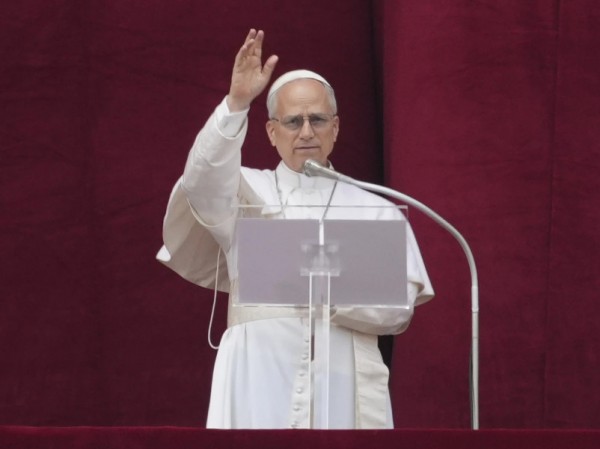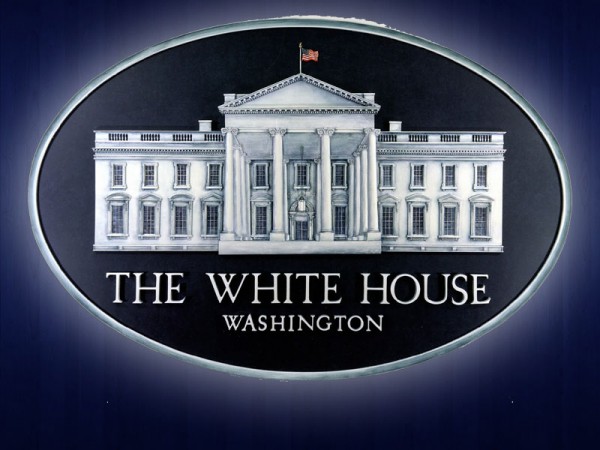JERUSALEM (AP) — Israel approved a United States-brokered ceasefire agreement with Lebanon's Hezbollah on Tuesday that would end nearly 14 months of fighting linked to the war in the Gaza Strip.
The ceasefire would mark the first major step toward ending the regionwide unrest triggered by Hamas’ attack on Israel on Oct. 7, 2023. But it does not address the devastating war in Gaza, where Hamas is still holding dozens of hostages and the conflict is more intractable.
Hours before the ceasefire with Hezbollah was to take effect, Israel carried out the most intense wave of strikes in Beirut and its southern suburbs since the start of the conflict and issued a record number of evacuation warnings. At least 24 people were killed in strikes across the country, according to local authorities, as Israel signaled it aims to pummel Hezbollah before the ceasefire takes hold at 4 a.m. local time on Wednesday.
Another huge airstrike shook Beirut shortly after the ceasefire was announced.
There appeared to be some lingering disagreement over whether Israel would have the right to strike Hezbollah if it believed the militants had violated the agreement, something Prime Minister Benjamin Netanyahu insisted was part of the deal but which Lebanese and Hezbollah officials have rejected.
Israel's security Cabinet approved the ceasefire agreement after it was presented by Netanyahu, his office said. U.S. President Joe Biden, speaking in Washington, called the agreement “good news” and said his administration would make a renewed push for a ceasefire in Gaza.
U.S. President-elect Donald Trump has vowed to bring peace to the Middle East without saying how. The Biden administration spent much of this year trying to broker a ceasefire and hostage release in Gaza but the talks repeatedly sputtered to a halt.
Still, any halt to the fighting in Lebanon is expected to reduce the likelihood of war between Israel and Iran, which backs both Hezbollah and Hamas and exchanged direct fire with Israel on two occasions earlier this year.
Netanyahu presented the ceasefire proposal to Cabinet ministers after a televised address in which he listed a series of accomplishments against Israel’s enemies across the region. He said a ceasefire with Hezbollah would further isolate Hamas in Gaza and allow Israel to focus on its main enemy, Iran, which backs both groups.
“If Hezbollah breaks the agreement and tries to rearm, we will attack,” he said. “For every violation, we will attack with might.”
The ceasefire deal calls for a two-month initial halt in fighting and would require Hezbollah to end its armed presence in a broad swath of southern Lebanon, while Israeli troops would return to their side of the border. Thousands of additional Lebanese troopsand U.N. peacekeepers would deploy in the south, and an international panel headed by the United States would monitor all sides’ compliance.
Biden said Israel reserved the right to quickly resume operations in Lebanon if Hezbollah breaks the terms of the truce, but that the deal "was designed to be a permanent cessation of hostilities.”
Netanyahu’s office said Israel appreciated the U.S. efforts in securing the deal but “reserves the right to act against every threat to its security.”
Lebanon’s caretaker Prime Minister Najib Mikati welcomed the ceasefire and described it as a crucial step toward stability and the return of displaced people.
Hezbollah has said it accepts the proposal, but a senior official with the group said Tuesday that it had not seen the agreement in its final form.
“After reviewing the agreement signed by the enemy government, we will see if there is a match between what we stated and what was agreed upon by the Lebanese officials,” Mahmoud Qamati, deputy chair of Hezbollah’s political council, told the Al Jazeera news network.
“We want an end to the aggression, of course, but not at the expense of the sovereignty of the state," he said, referring to Israel's demand for freedom of action. “Any violation of sovereignty is refused.”
Even as ceasefire efforts gained momentum in recent days, Israel continued to strike what it says are Hezbollah targets across Lebanon as the militants fired rockets, missiles and drones across the border.
An Israeli strike on Tuesday leveled a residential building in central Beirut — the second time in recent days warplanes have hit the crowded area near the city’s downtown. At least seven people were killed and 37 wounded, according to Lebanon's Health Ministry. Strikes on Beirut's southern suburbs killed at least one person and wounded 13, it said.
Three people were killed in a separate strike in Beirut and three in a strike on a Palestinian refugee camp in southern Lebanon. Lebanese state media said another 10 people were killed in the eastern Baalbek province. Israel says it targets Hezbollah fighters and their infrastructure.
Israel also struck a building in Beirut's bustling commercial district of Hamra for the first time, hitting a site that is around 400 meters (yards) from Lebanon’s Central Bank. There were no reports of casualties.
The Israeli military said it struck targets in Beirut and other areas linked to Hezbollah's financial arm.
The evacuation warnings covered many areas, including parts of Beirut that previously have not been targeted. The warnings, coupled with fear that Israel was ratcheting up attacks before a ceasefire, sent residents fleeing. Traffic was gridlocked, and some cars had mattresses tied to them. Dozens of people, some wearing their pajamas, gathered in a central square, huddling under blankets or standing around fires as Israeli drones buzzed loudly overhead.
Israeli military spokesman Avichay Adraee issued evacuation warnings for 20 buildings in Beirut's southern suburbs, where Hezbollah has a major presence, as well as a warning for the southern town of Naqoura where the U.N. peacekeeping mission, UNIFIL, is headquartered.
UNIFIL spokesperson Andrea Tenenti told The Associated Press that peacekeepers will not evacuate.
The Israeli military also said its ground troops clashed with Hezbollah forces and destroyed rocket launchers in the Slouqi area on the eastern end of the Litani River, a few kilometers (miles) from the Israeli border.
Under the ceasefire deal, Hezbollah would be required to move its forces north of the Litani, which in some places is about 30 kilometers (20 miles) north of the border.
Hezbollah began firing into northern Israel on Oct. 8, 2023, saying it was showing support for the Palestinians, a day after Hamas carried out its attack on southern Israel, triggering the Gaza war. Israel returned fire on Hezbollah, and the two sides have been exchanging barrages ever since.
Israel escalated its campaign of bombardment in mid-September and later sent troops into Lebanon, vowing to put an end to Hezbollah fire so tens of thousands of evacuated Israelis could return to their homes.
More than 3,760 people have been killed by Israeli fire in Lebanon the past 13 months, many of them civilians, according to Lebanese health officials. The bombardment has driven 1.2 million people from their homes. Israel says it has killed more than 2,000 Hezbollah members.
Hezbollah fire has forced some 50,000 Israelis to evacuate in the country’s north, and its rockets have reached as far south in Israel as Tel Aviv. At least 75 people have been killed, more than half of them civilians. More than 50 Israeli soldiers have died in the ground offensive in Lebanon.
___
Chehayeb and Mroue reported from Beirut. Associated Press reporters Lujain Jo and Sally Abou AlJoud in Beirut, and Aamer Madhani in Washington, contributed.
___
Find more of AP’s war coverage at https://apnews.com/hub/israel-hamas-war

















